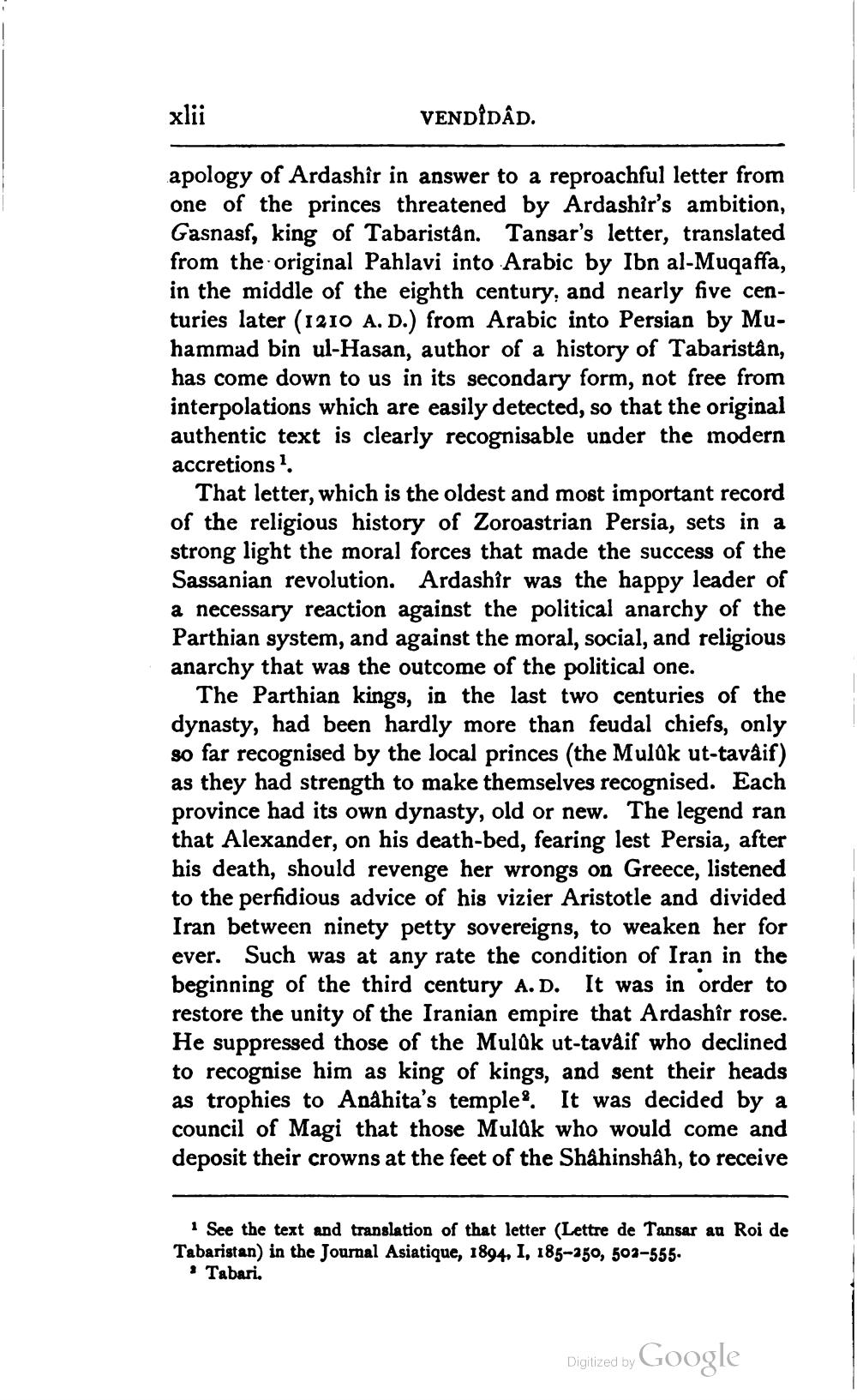________________
xlii
VENDÍDÂD.
apology of Ardashir in answer to a reproachful letter from one of the princes threatened by Ardashir's ambition, Gasnasf, king of Tabaristân. Tansar's letter, translated from the original Pahlavi into Arabic by Ibn al-Muqaffa, in the middle of the eighth century, and nearly five centuries later (1210 A. D.) from Arabic into Persian by Muhammad bin ul-Hasan, author of a history of Tabaristân, has come down to us in its secondary form, not free from interpolations which are easily detected, so that the original authentic text is clearly recognisable under the modern accretions ?
That letter, which is the oldest and most important record of the religious history of Zoroastrian Persia, sets in a strong light the moral forces that made the success of the Sassanian revolution. Ardashir was the happy leader of a necessary reaction against the political anarchy of the Parthian system, and against the moral, social, and religious anarchy that was the outcome of the political one.
The Parthian kings, in the last two centuries of the dynasty, had been hardly more than feudal chiefs, only so far recognised by the local princes (the Muldk ut-tavaif) as they had strength to make themselves recognised. Each province had its own dynasty, old or new. The legend ran that Alexander, on his death-bed, fearing lest Persia, after his death, should revenge her wrongs on Greece, listened to the perfidious advice of his vizier Aristotle and divided Iran between ninety petty sovereigns, to weaken her for ever. Such was at any rate the condition of Iran in the beginning of the third century A.D. It was in order to restore the unity of the Iranian empire that Ardashîr rose. He suppressed those of the Mulak ut-tavaif who declined to recognise him as king of kings, and sent their heads as trophies to Anahita's temple. It was decided by a council of Magi that those Mulak who would come and deposit their crowns at the feet of the Shảhinshâh, to receive
1 See the text and translation of that letter (Lettre de Tansar au Roi de Tabaristan) in the Journal Asiatique, 1894, I, 185-250, 501-555.
• Tabari.
Digitized by
Digitized by Google




